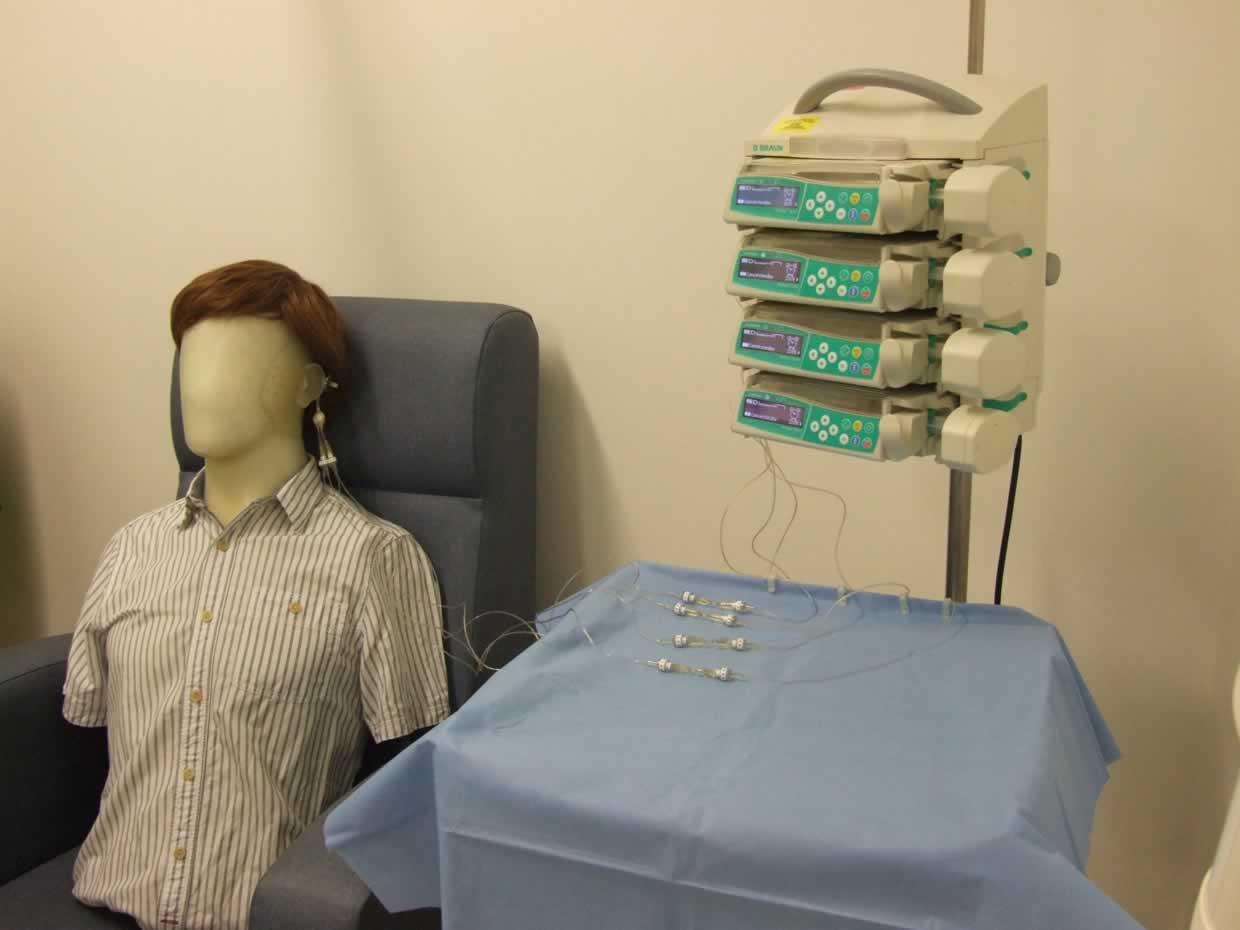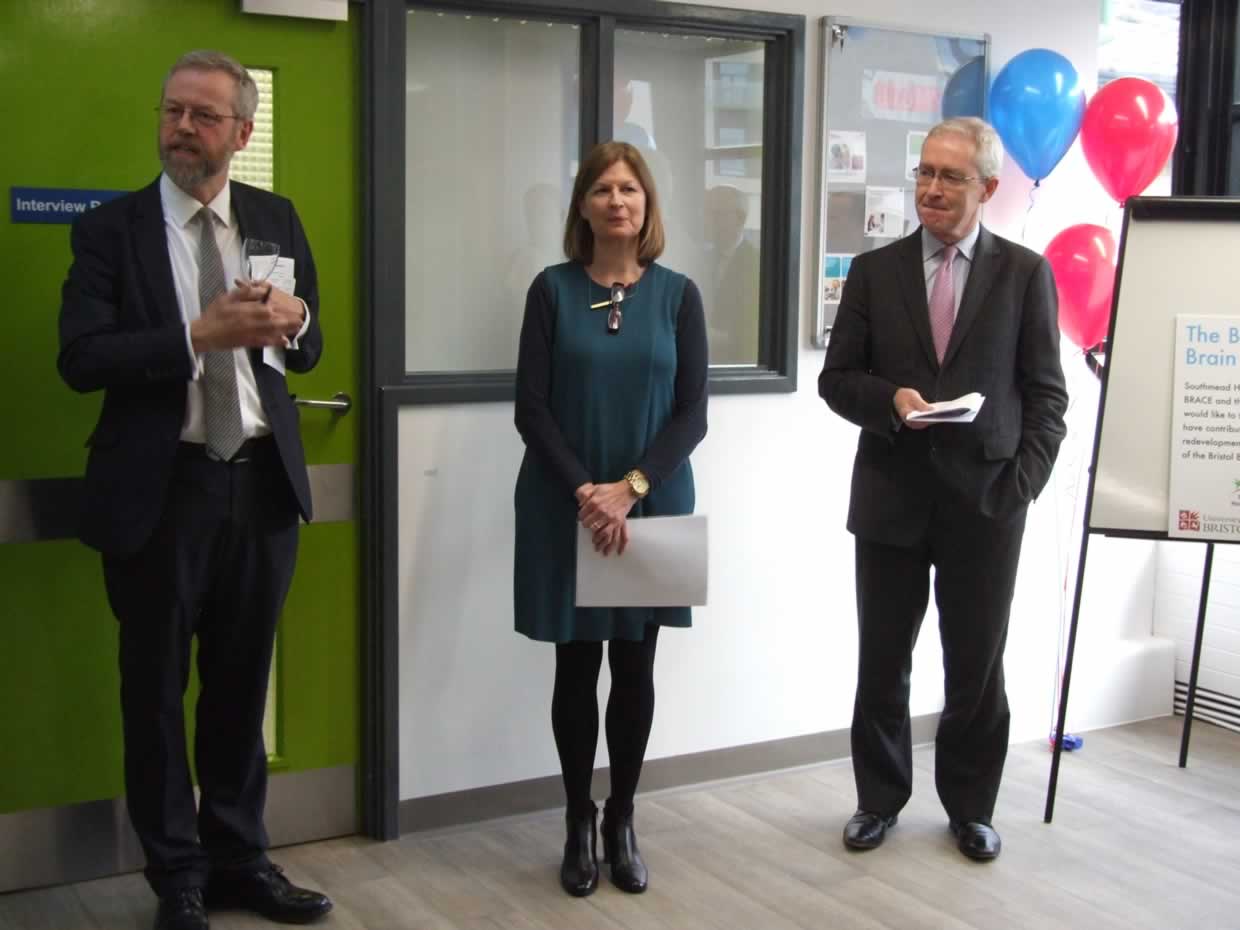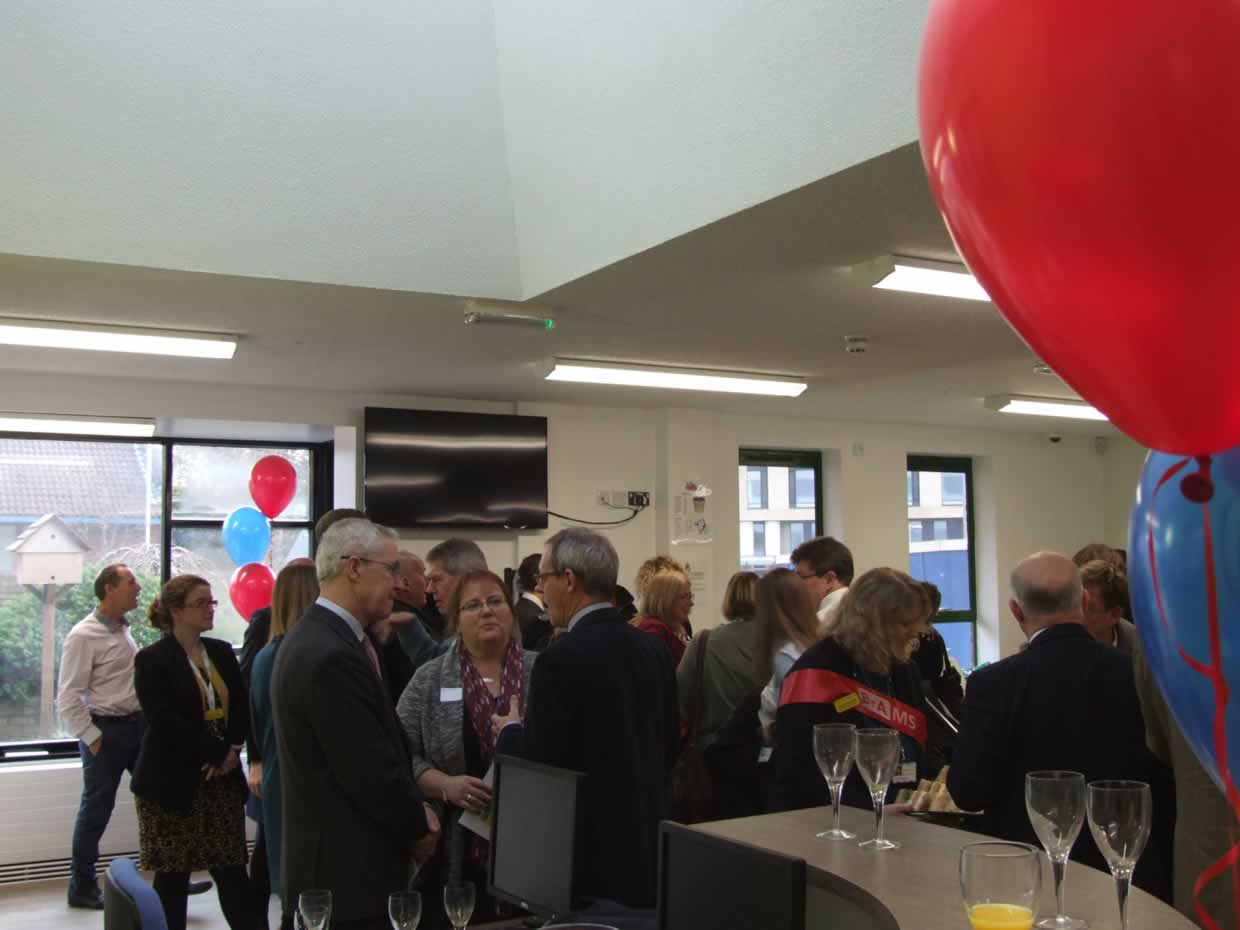North Bristol Trust opens Bristol Brain Centre
The new Bristol Brain Centre at Southmead Hospital brings together North Bristol Trust's considerable expertise in neurological disorders under one roof, designed with the patient at its heart.
- 26th November 2015
The new Bristol Brain Centre at Southmead Hospital, which brings together North Bristol Trust’s considerable expertise in neurological disorders under one roof, was officially opened on 25 November.The centre is the first of its kind in the country to bring together research teams in the areas of multiple sclerosis, dementia and movement disorders, such as Parkinson’s. It brings together the Bristol Health Partners Parkinson’s and Other Movement Disorders Health Integration Team (MOVE-hIT) and the Dementia HIT.
The centre is based on the top floor of Elgar House, which has been completely refurbished. More than 150 people, including patients, their families and carers, attended the launch, which included demonstrations of the cutting-edge treatments being researched at the centre.
BrAMS and MOVE-hIT are part of Southmead Hospital Charity and together with BRACE and the University of Bristol, via campaigns and the alumni, have contributed over £1.5 million to the establishment of the Bristol Brain Centre.

GDNF infusion demonstration at the Bristol Brain Centre launch
Professor Neil Scolding, Professor of Clinical Neurosciences at North Bristol NHS Trust and the University of Bristol, said:
“This is a fantastic facility in which clinical research teams from across Bristol are leading the way in finding ways to combat a number of truly debilitating neurological diseases.
“Thank you to the support from members of the public, the University, BrAMS and BRACE without which we wouldn’t be here today.”
Andrea Young, Chief Executive of North Bristol NHS Trust, said:
“The brain centre is aptly named I think because this centre is not only dedicated to the study and enquiry of brains but it also possesses some of the most brilliant brains I have met.
“Everyone here is committed to a common purpose and that is a better life for people with neurological conditions.
I want to acknowledge the enormous support and contributions made in getting here.“What I could see in Frenchay two years ago was at the cutting edge of science and exceptional clinical care and it was clear that we had something special and unique so it is great to bring that all together here in this centre.”
Professor Hugh Brady, University of Bristol, Vice-Chancellor and President, said:
“Scientists and clinicians now work together with patients to unlock what goes wrong when disease affects us not only leading to understanding of what causes disease but also important new treatments which are already improving in a significant way the lives of patients and that is the opportunity that we have here – to build on that success and take it to another level.
“You have something really special here at the brain centre, at the heart of a great hospital.
“You do not only have great clinical practice but great research, helping to inform the health professionals of the future.
“You have managed to inspire donors to support the project and a special thank you to all of you who have backed this important venture.
“This will put Bristol at the forefront of the international scene of neuroscience.”

Professor Hugh Scolding, Andrea Young and Professor Hugh Brady at the Bristol Brain Centre launch
Based at the centre are:
BrAMS (Bristol & Avon MS Service)
A dedicated service for people with multiple sclerosis supported by a multi-disciplinary team which includes specialist doctors, nurses, physiotherapists and psychologists, supported by administrative assistants and secretaries who offer a wide range of clinical research and specialist care for patients with MS.
This ranges from participation in major pharmaceutical trials to novel services for fatigue in MS, and from nationally recognised physiotherpeutic care to unique approaches to assessing and measuring the impact of MS on brain function, to ground-breaking stem cell treatment trials.
MOVE-hIT
This is the health integration team for Parkinson’s and other movement disorders, comprising specialist doctors and nurses and researchers.
The objective of MOVE-hIT is to evolve an internationally recognised service for Parkinson’s and other movement disorders by working to fully integrate all aspects of clinical care, translational research and education.
This includes a flagship deep brain stimulation service and a well-established research service.
The team are developing a regional advanced treatment service, whilst striving to transform services for local Parkinson’s patients by developing an interactive, comprehensive care pathway.
The ReMemBr Group
This is a team of clinicians, researchers, psychologists and nurses all working to improve the lives of people with dementia, through research and clinical services.
Its research spans lifestyle modifications, techniques to improve early diagnosis, medications that might enhance quality of life as well as those that might slow down, halt or even prevent dementia.
The group has close working links with the University of Bristol, Brace and the Dementia Research Group in Bristol. It also runs a cognitive clinic, specialising in early onset or rarer forms of dementia.
BRACE
This is an independent charity, established in 1987, to finance research into conditions of the elderly, particularly Alzheimer’s disease. BRACE supports research projects undertaken in universities and hospitals in the South West and South Wales. It currently includes the ReMemBr Group and South West Dementia Brain Bank, both based at Southmead Hospital.
BRACE has so far raised more than £14 million to help support diverse research projects into all aspects of dementia.

People at the Bristol Brain Centre launch






